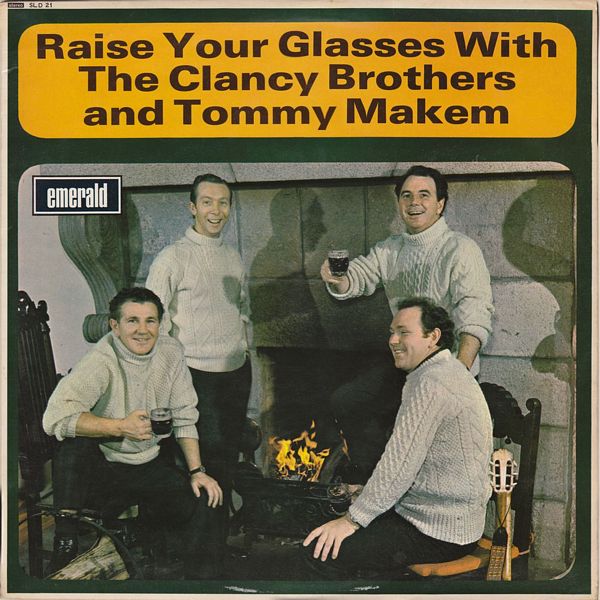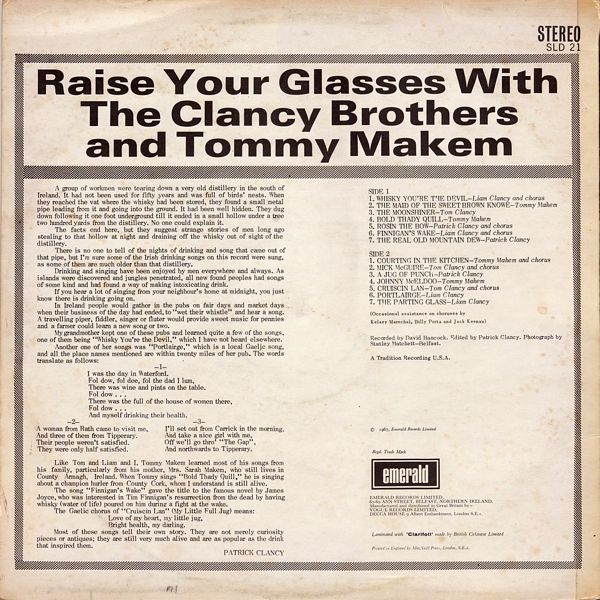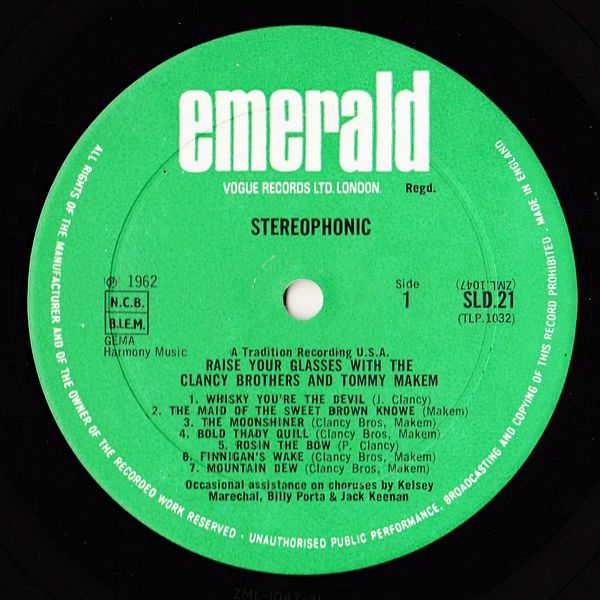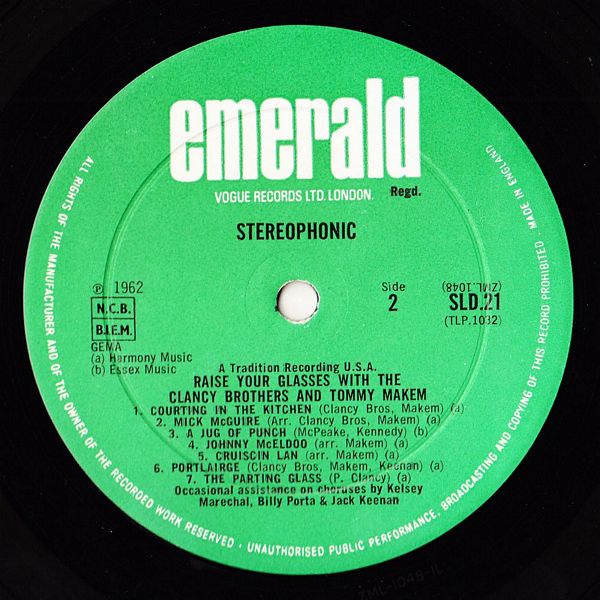

 |


 |
Sleeve Notes
A group of workmen were tearing down a very old distillery in the south of Ireland. It had not been used for fifty years and was full of birds' nests. When they reached the vat where the whisky had been stored, they found a small metal pipe leading from it and going into the ground. It had been well hidden. They dug down following it one foot underground till it ended in a small hollow under a tree two hundred yards from the distillery. No one could explain it.
The facts end here, but they suggest strange stories of men long ago stealing to that hollow at night and draining off the whisky out of sight of the distillery.
There is no one to tell of the nights of drinking and song that came out of that pipe, But I'm sure some of the Irish drinking songs on this record were sung, as some of them are much older than that distillery.
Drinking and singing have been enjoyed by men everywhere and always. As islands were discovered and jungles penetrated, all new found peoples had songs of some kind and had found a way of making intoxicating drink. If you hear a lot of singing from your neighbor's home at midnight, you just know there is drinking going on.
In Ireland people would gather in the pubs on fair days and market days when their business of the day had ended, to "wet their whistle" and hear n song. A travelling piper, fiddler, singer or fluter would provide sweet music for pennies and a farmer could learn a new song or two.
My grandmother kept one of these pubs and learned quite a few of the songs, one of them being "Whisky You're the Devil," which I have not heard elsewhere.
Another one of her songs was "Portlairge," which is a local Gaelic song, and all the place names mentioned are within twenty miles of her pub. The words translate as follows:
— 1 —
I was the day in Waterford.
Fol dow, fol dee, fol the dad I lum.
There was wine and pints on the table.
Fol dow . . .
There was the full of the house of women there,
Fol dow . . .
And myself drinking their health.
— 2 —
A woman from Rath came to visit me,
And three of them from Tipperary.
Their people weren't satisfied.
They were only half satisfied.
— 3 —
I'll set out from Carrick in the rooming,
And take a nice girl with me.
Off we'll go thro' "The Gap,"
And northwards to Tipperary.
Like Tom and Liam and I, Tommy Makem learned most of his songs from his family, particularly from his mother, Mrs. Sarah Makem, who still lives in County Armagh, Ireland. When Tommy sings "Bold Thady Quill," he is singing about a champion hurler from County Cork, whom I understand is still alive.
The song "Finnigan's Wake" gave the title to the famous novel by James Joyce, who was interested in Tim Finnigan's resurrection from the dead by having whisky (water of life) poured on him during a fight at the wake.
The Gaelic chorus of "Cruiscin Lan" (My Little Full Jug) means:
Love of my heart, my little jug,
Bright health, my darling.
Most of these songs tell their own story. They are not merely curiosity pieces or antiques; they are still very much alive and are as popular as the drink that inspired them.
PATRICK CLANCY